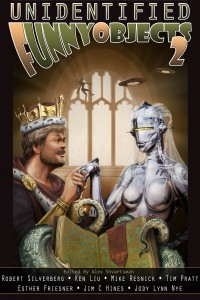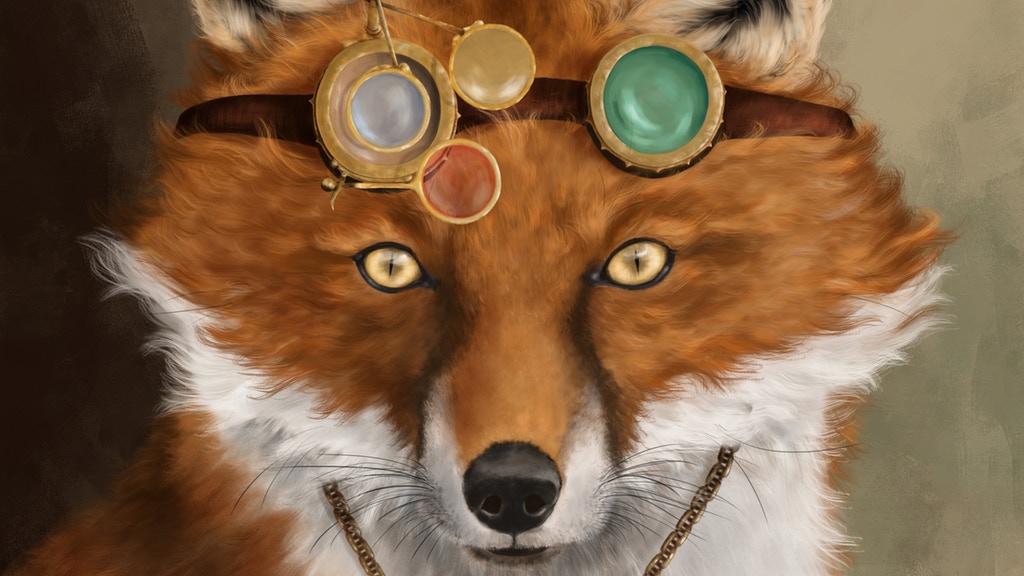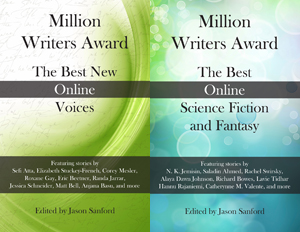written by Frank Dutkiewicz
Whew. Just emptied a big pile of commitments on my desk and can finally get around to reviewing some excellent material. So while I’m going over August’s offerings, why don’t you take a gander at what July’s stories were all about.
Remembrance by David G. Uffelman (debut 7/1 and reviewed by Dustin Adams).
The Old Mother of a herd of elephants hears news of grief from her distant counterpart. As she prepares to move the herd, to pay respects, she’s questioned by her eldest daughter and eventual successor. This is a good lesson for the younger, and for all. They set out on their journey because the Old Mother knows best.
What I didn’t know until after reading the story comments is that the human, the object of the elephants’ grief and respect, was based on Laurence Anthony. The “Elephant Whisperer.” I felt the tale was lovely, and after learning this fact, I gained a deeper appreciation for the entire story.
Memories like Bread, Words like Little White Stones by Cecile Cristofari (debut 7/2 and reviewed by Dustin Adams).
When an elderly man loses his memories, his wife, unable to watch him drift away, picks up a summer job delivering mail. At first, she sees a postcard that reminds her of an earlier holiday.
Before long, like the real life postman (Ferdinand Cheval) who collected stones along his route to build a palace, the woman’s letters grew into a house. But in fiction, the house could become real, and inviting, and welcoming.
Beautifully written, the story builds, a piece at a time, toward a warm and peaceful conclusion.
Scramble! by Melissa Mead (debut 7/3 and reviewed by Dustin Adams).
A twist on Humpty Dumpty, living on a different planet, guarding other eggs. When the king’s men knock him down, crack him, and refuse to put him back together again…
Humpty Dumpty gets even.
In Portal Worlds and Your Child: A Parent’s Guide (With Examples) by Matt Mikalatos (debut 7/4 and eviewed by Dustin Adams) we have a wonderful guide (with examples) of what to do, and how to react, should your child be able and inclined to travel or have traveled via portal to another world.
I appreciated the layout of the story, and following one particular girl through her travels there and back, but one thing hung me up a bit. On the one hand we have the guide, which begins firmly entrenched in the fantastic reality of a child– “Watch for imaginary friends, talking
animals, or strange behaviors (avoiding sidewalk cracks, fear of open closets, obsessively locking bedroom windows, etc.).” Which I loved, because I figured this would be a story that would leave me questioning my perception of reality. On the other hand, the story itself journeyed into the realm of fantasy, becoming its own fantastic world, which, for me, negated the “reality” of the earlier writing.
However, that said, this remains an enjoyable read. (And a handy guide.)
Memories of Mirrored Worlds, by Barbara A. Barnett (debut 7/5 and reviewed by Dustin Adams) gives us glimpses of the life of Alison Marie, Queen of the Nightlands, daughter of reality, and Servant of Death. This tale is filled with the melancholy of someone who is physically torn between two worlds, but also emotionally. Alison Marie wishes to return to the world where she is a queen, and is visited many times over her life by those beckoning for her return, but she cannot because to go is to forget her own mother.
While I appreciated the sadness and the duality within Alison Marie, I felt somewhat let down by the introduction of a new character late in the story, who is granted that which Alison Marie cannot have. Seemed too easy.
Of Ash and Old Dreams by Sara Grey (debut 7/8 and reviewed by James Hanzelka)
She is no longer a young girl sweeping ash from a fireplace and dreaming of true love; she is a queen. But her feet have grown fat and the glass slippers hurt to wear. The years wear on and the magic gown of her youth becomes a worn and faded reminder of the past. The parade of years will eventually turn her hair to grey and she can no longer muster the strength to attend the affairs beside her king, but what else can she do she is a queen?
This is a very good story that explores the concept of what happens after the ball where Cinderella meets her prince charming. The author has done a masterful job of capture the slow decay brought on by time and leads us to a place we all get to eventually. Well written and well-paced this is a very good story. Take the time to read it.
Tell Them of the Sky by A. T. Greenblatt (debut 7/8 and reviewed by James Hanzelka)
She first came into his shop wearing a silk robe, the crÃ�’ �me color so out of place in the city. Aya plays with the toy birds and kites, but doesn’t ask the question. Over the years she and Kitkun dance around her desire to know what is above the black layer of smog overhead. She asks about the sky, but isn’t ready to seek it. In time she goes to fight in the latest war and Kitkun fears he has lost her, but when she returns she is sadder and wiser. Will she seek the sky?
This is a nice story, well told and well-paced. In it you can find the quest of youth for the unknown and the determination to seek your dreams later in life. The characters are well drawn and the author does a very good job of building relationship. Give this one a read.
Bedtime Stories by Jayson Sanders (debut 7/10 and reviewed by Frank D). The Creator is putting down His children for their great sleep. They beg and plead that they are not ready, but it is time for them to go. They are due on last story before they make room for those who come next.
“Bedtime Stories” is a tale of a deity ushering out mankind. It is written as a loving parent tucking in their children for their nighttime rest. A brief and distant tale.
The Flight Stone by KJ Kabza (debut 7/11 and reviewed by Frank D). The protagonist is a starving orphaned girl selected to become an air knight. The airborne horses cannot handle a heavy load so the small and light are needed to fill the duty. The best chance to become a knight is to remain thin. Failure means expulsion. As cruel as the school is, it is far better than the streets.
“The Flight Stone” is a tale of desperation. The children have nothing but the school, but to remain, they have to weigh almost nothing. Even the smallest of growth spurts dooms a candidate. This tale is a metaphor for the conditions that creates bulimia. The story is difficult to get through and sad. Knowing why air knights are so important would have helped. Without it, the tale was nothing more than a needless child abuse story to me.
A fighter climbs into unlucky number thirteen in On The Big-Fisted Circuit by Cat Rambo (debut 7/12 and reviewed by Frank D). Jane is a mecha-suit fighter, battling in four story robots for the honor of corporate sponsors. The suit has twelve previous pilots, and thirteen is the unwritten limit of a suit. The previous pilot backed out but that isn’t an option for Jane. She fights so her impoverished family will have a better life, and fights like this pay too well, even when the outcome is ordained.
“On The Big-Fisted Circuit” is Riley in an Aliens hydraulic suit set in a Real Steel premise. Jane has a problem many up-and-coming athletes have today; they are the sum of the hopes and dreams of their impoverished family. The self-sacrificing premise is a common one and made this story of Ms Rambo’s disappointing and impressive at the same time for me. The storyline was a thin one, and its outcome predictable. It is a testament to Ms Rambo’s skill that she could stretch it out and compile it to make it more than it really was. Nevertheless, “Big-Fisted” was a story I’ve heard before. Only the setting, and Ms Rambo’s fresh paint, gave it an original feel.
A married couple shops for fruit in Theories of Pain by Rose Lemberg (debut 7/15 and reviewed by Frank D). The two characters in this tale buy an apple, wait for it to rot, while they live their life. The changing events are like the different textures of fruit (or I could be completely wrong).
Truthfully, I’m not sure what this was about. I couldn’t make the connections between the analogies and metaphors the author was after. The point of the piece was lost on me.
A persistent novelist makes his pitch to a publisher in Diamond Doubles by Eric Brown (debut 7/16 and reviewed by Frank D). A series of letters is presented as a possible explanation for the disappearance of a book publisher. The letters are a series of pitches, accompanied by manuscripts, speaking of life in the far future, written by a “T Traveler”. They hint of the authors past, and of our distant future.
This tongue and cheek tale has a premise that is quite predictable. Cute.
A hasty hostage taking creates a new opportunity for the protagonist in The Negotiation by D. Thomas Minton (debut 7/17 and reviewed by Frank D). Samson is a desperate man, down on his luck with a series of bad choices has led him to strap explosives to his chest, demanding money from a bank. Alexandre used to hold a job to deal with poor souls like Samson: attempt to appeal to their good side and save them for themselves. He was terrible at it. Samson presents a new opportunity for Alexandre, and this job appeals to his previous weakness. He just needs Samson to cooperate.
The premise to this story relies on the twist. A bit out of the blue (the twist) but a good one nevertheless. Not bad.
A temporal maintenance worker follows time tourists in Join Our Team of Time Travel Professionals by Sarah Pinsker(debut 7/18 and reviewed by Frank D). Its Magda’s first day of her job. She is a disguised bag lady tailing tourists of the future in modern day New York. Her job is to pick up the trash they leave behind , remnants of the future , and follow them until the pick-up point. Then it occurs to her, what if she misses the pick-up point?
“Join Our Team” examines the menial work of time travel. It is cheaper to hire people like Magda to pick up after time tourists then it is to train the tourists to blend in the past. Magda needs this job , so much she didn’t read the fine print when she signed her contract. Amusing little piece.
For Your Protection by Steven Mathes (debut 7/19 and reviewed by James Hanzelka).
Joseph has his weekly appointment for a brain scan. He prepares himself, both physically and mentally: new clothes and reminders to not answer the voices in his head out loud. As he nears the park the female voice tells him to take a cab; he resists but finally hails a car. Halfway around the park the air shimmers and the veil drops, trapping most of the people inside. By the time he gets to the mental health center only a few bots are left chasing papers that are blowing in the wind. He turns and heads into the center with the waiting scanner.
This is the beginning of a really good story, but unfortunately this tale doesn’t live up to the promise of these early scenes. The world Joseph inhabits is a mishmash of crazy, aliens and intrigue, but the reader is never sure which. This can be a decent premise if well handled; this one wasn’t and I never developed a real affinity for Joseph or a good sense for his world. I would have liked more.
Demonic Summoning, Ratings and Reviews by Simon Kewin (debut 7/19 and reviewed by James Hanzelka).
This collection of ratings is a summary of user’s reviews for the app Demonic Summoning. It seems the users found the app to work less well than expected, unless the instructions are followed explicitly. Even then mixed reviews seem to indicate some difficulty with making the app run properly. A few users were cut off mid review, indicating the software may contain discontinuities of a critical nature. Still the developer does ensure that these issues will be corrected and encourages prospective users to give it a try. I will report on our success as soon as I can locate my researcher.
This is a very cleverly done little ditty done as a collection of user reviews of software for summoning demons. The author has done a good job of leading us along with the path from negative reviews, to positive reviews, to downright scary results. A nicely done ending caps the thing off. It may not be your cup of tea, but I enjoyed it immensely.
An enticing invitation to an unknown destination tempts an overworked student in Breaking Orbit by Rachael Acks (debut 7/23 and reviewed by Frank D). A dragon rolls up to the platform in place of Ayako’s usual train. It tells Ayako to jump on, but the wary student hesitates. A homeless man warns Ayako that the dragon will stop coming if she keeps refusing, but what good can come from pursuing a whim?
“Breaking Orbit” is a tale of choices. The dragon represents the sum of Ayako’s dreams. She has responsibilities with her education. Would it be wise to turn her back on them? The tale is a good metaphor for all who weigh of pursuing frivolity against boring practicality.
A time traveler helps a boy face his bullies in Sticks and Stones by Kevin Pickett (debut 7/24 and reviewed by Frank D). The protagonist stands next to a small child who is about to pummeled by four larger and meaner boys. The cloaked guardian has a way of evening the odds for the child who will grow up to do great things.
Not a bad time traveling tale. Didn’t catch the subtle twist until my second read.
Squeak by Emma Osbourne (debut 7/25 and reviewed by Frank D). Keesa wanted to be a lion, but instead becomes a mouse when her time for transformation arrives. She doesn’t understand why the gods refused her wish, until the hunters arrive.
Squeak is a story of faith. The protagonist learns why our prayers are sometimes ignored and how a curse can be a blessing in disguise. A good short tale.
By The Hands of Juan Peron by Eric James Stone (debut 7/26 and reviewed by Frank D).
Tomas Peron is summoned by his father, Juan Peron , Emperor of Latin America. The Emperor informs his Catholic priest son that he will be the next person in line to the throne. Tomas does not approve of his father’s heavy hand, nor does he like the Emperor’s treatment of the church, but Juan has trump card that can change Tomas’s mind. God exists, and he can prove it.
“By The Hands” is an alternative history tale involving the late Juan Peron of Argentina. His nation is the dominant nation of Earth in this timeline. Their technological superiority was made possible thanks to a crashed saucer and surviving alien in 1947. The Argentinian timeline is one of five diversions from a common historical thread marked by the dropping of the atomic bombs in World War II. The surviving alien, named Angelica, has said the multiple timelines are made possible by design and is watched over by the Prime Observer. The Observer decides which timeline is worthy to pursue and is usually determined by a major event that gathers His attention. The Argentinians have used the alien technology to keep tabs on the other timelines. Juan knows God (or Prime Observer) will erase all but one line, and he has a plan to make sure the Argentinian line that will be the one that must survive. So when one alternative timeline has discover the means to travel to other lines, Juan decides to execute a plan that will attract the attention of God so He will show favor on his world , a plan that will involve the death of millions.
I admit, nothing gets me excited like a well-planned work of alternative history. “By The Hands” is a tale that stays true to the genre. The premise is nicely detailed, complete with a firm set of rules. Juan Peron is a hundred year old man, still very much alive thanks to alien assisted rejuvenation technology. He rules with an iron hand, much to the dismay of Tomas. Tomas agrees to his father’s request to be his heir but has second thoughts when he grasps his fathers ‘ends-justifying-the-means’ plan for survival.
“By The Hands” is a good tale. True to history with teasers for histories that never were. If you like Alternative History as much as I, then you won’t want to miss this one.
He was the most expert programmer in the world, in The Programmer and the Social Worker, or, A Love Story about Feature Creep by Tina Connolly (debut 7/29 and reviewed by James Hanzelka), but when his wife fell sick he packed up his seven laptops, unrolled CAT6 cable, and escaped to the cellar. She went to work, shopped, read her library books and slept alone. After seven days he emerged with bloodshot eyes and full of caffeine. He drug her to Sweden for the cure. Each time they put her under she demurred, but they cajoled, pleaded and begged until she relented. In the end she was permanently cured, her code perfected. But would the feature creep end the love story?
This is a strange little tale. Lots of computer speak and gobbledygook to wade through, but underneath is a nice love story and two opposites. The story winds on, with the programmer driven to save his wife, she trying to hold on to the normal. He succeeds beyond his wildest imagination, or at least hers, but in doing so she starts to leave him behind. When she turns back to beckon him to her, will he follow? I liked this story, not as much as some, but the subtext was quite endearing. Give it a try.
Super-Parents Last All Childhood Long by Erica L. Satifka (debut 7/30 and reviewed by James Hanzelka).
Caleb planned to break up with Shora after the movie, but when they got back to her room and she removed her shirt, he couldn’t do it. Still she was crazy to believe her parents were robots. Well not crazy, but definitely strange. Later, he went to the bathroom and searched her medicine cabinet, but found no pills. She wasn’t crazy, just strange. Later, at the store, as he buys a paper to look for work he starts to notice how distant and remote people are. Just the result of today’s isolated society, or was it?
I never did get fully into this story. Maybe it was by design because it was drawing a comparison to the remoteness of interaction in today’s society and what we perceive as the blandness of robotic emotions. To me, however, the plot just never fully developed. It just sort of bumped along with the underlying subtext, but never drew me in to the characters.
A man is plagued by an object of his guilt in The Dollmaker’s Grief by Michelle M. Denham (debut 7/31 and reviewed by Frank D). The protagonist recognizes an android doll standing in a shop’s window. The object is a reminder of a dark and regrettable moment in his life. The doll is missing something, something the protagonist can never give it.
“The Dollmaker’s Grief” is a solemn tale with a depressing twist. I was impressed that the author managed to make a sad story even sadder.
Making Your Money Work For You†�
For a good three years Daily Science Fiction has been laying a foundation as an attraction. With an original distribution plan, a rate to attract the best talent, and a selection of material that spans the breadth of speculative fiction, the publication has become a magnet for readers around the world. In short, you couldn’t find a better billboard if drove the length of the Washington Beltway (go ahead and try, I dare ya).
If you have a book, event, film, or Fortune Five Hundred product (McDonalds or Coca-Cola would be fine), and you want to focus your message on a specific audience, you can’t find a better place than Daily Science Fiction. DSF‘s readers are not a group of comic book nerds who hide in the closet to read by flashlight. No. They were a group of comic book nerds who used to hide in the closet to read by flashlight, but are now doctors, lawyers, professors, and successful career business men and woman. They are bright, on the upper half of money earners, and above all, loyal. Your Ad showcased on the electronic pages of DSF will be seen and your item will be noticed. Looking for an edge in a crowded market? Daily Science Fiction will help your product stand out in a crowd.
And because the friends of our friends are Diabolical Plots’ friends, here is this month’s bio featuring Daily SF‘s first advertising customer.
 Why does science fiction and fantasy have to be so serious? Who says it has to be?
Why does science fiction and fantasy have to be so serious? Who says it has to be?
Alex Shvartsman (got to be funny with a name like that) has given us his latest anthology of side-splitting works of speculative fiction. Unidentified Funny Objects 2 is now available for purchase. Featuring original works from Mike Resnick, Robert Silverberg, Ken Liu, and Tim Pratt (to name just a few), UFO2 promises to be a hit. It’s funny. I should know, and I’m not saying that just because I helped to pick them out.
Associate Editor’s pick: “Class Action Orc” by James Beamon. Some lawyer jokes just never get old.







